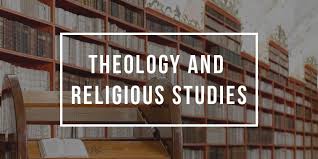Studying theology and religious studies allows you to explore how religious beliefs and practices shape and influence the world we live in
Job options
Jobs directly related to your degree include:
- Chaplain
- Higher education lecturer
- Primary school teacher
- Secondary school teacher
Jobs where your degree would be useful include:
- Advice worker
- Archivist
- Charity fundraiser
- Counsellor
- Civil Service administrator
- Community development worker
- International aid/development worker
- Mediator
- Newspaper journalist
- Police officer
- Youth worker
Work experience
It's important to get relevant work experience to boost your employability prospects. Talk to professionals in the field you're interested in, and consider the different types of placements and work available.
If you're thinking about work in religious ministry, talk to local spiritual leaders and get involved in the life of your religious community to find out more about what's involved.
Typical employers
As a theology and religious studies graduate, you could work in a variety of different roles in a range of employment sectors. Typical employers include:
- national and local government, including the Civil Service and government agencies, as well as non-governmental organisations (NGOs)
- schools, colleges and universities (for teaching and research positions)
- charities, voluntary and not-for-profit organisations
- social services and other caring professions
- the church and other religious organisations
- financial and legal firms
- the National Health Service (NHS)
- PR, advertising, sales and marketing companies
- media companies.
Skills for your CV
Studying theology and religious studies gives you a thorough understanding of the major world religions, their historical development and their relationship with the world we live in. You'll gain insight into the theological, ethical, cultural, political and philosophical issues of religion.
You also develop skills that are valued by employers in a range of sectors. These include:
- research, analysis and presentation skills
- critical thinking skills and the ability to interpret information, formulate questions and solve problems
- organisational and time management skills
- teamworking and communication skills
- writing skills, including accurate referencing and the ability to construct a reasoned argument
- IT skills
- empathy and the ability to understand people and take on board others' views
- the ability to work methodically and accurately
- independence of mind and the ability to think for yourself.








